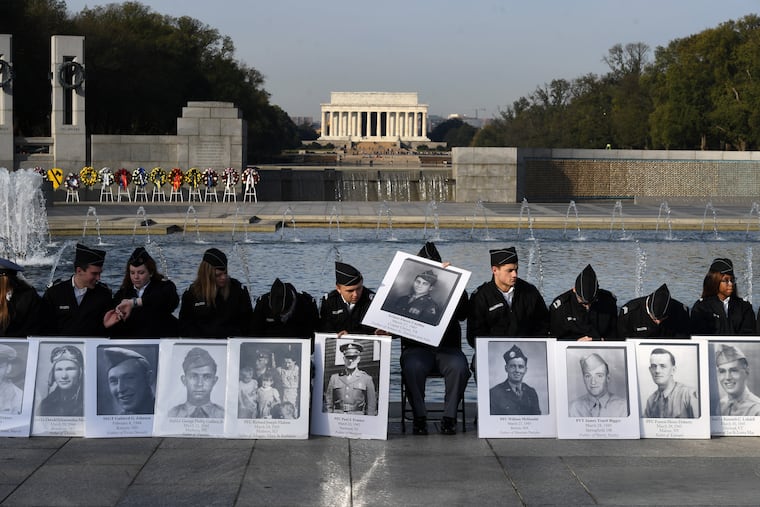Veterans need better access to mental health care. Here’s how that can happen l Opinion
For veterans and those serving in the National Guard and Reserves, navigating the mental health care system -- which can be challenging for anyone -- can be even more complicated.

It was a typical day in the clinic. A new client came in for an initial assessment. They disclosed that they had been feeling depressed for a while and, after a little more questioning, acknowledged that they had attempted to take their life just a few days prior – a fact they had not shared with anyone since.
Unfortunately, this client was National Guard member, so they were not eligible for many veteran services. And, because this Guard member did not have stable work, they couldn’t afford the National Guard subsidized health insurance. They were afraid to go to the hospital, because they couldn’t afford it, but let their clinician know that they weren’t sure they could keep themselves safe after their appointment.
It is stories like this that make it painfully clear that our service members, veterans, and military family members are under increased stress and need increased access to the care they deserve. Fortunately, this client went on to successfully complete therapy and today is living a much fuller and happier life.
Pursuing mental health care services can be overwhelming for anyone. From navigating the various types of care to understanding insurance coverage– there can be a lot of hoops to jump through to simply schedule a first appointment. In a recent comprehensive study that looked at access to mental health care, 76 percent of Americans surveyed believed mental health is just as important as physical health. However, about half of those surveyed had never pursued treatment and reported not knowing how to find mental health care services.
For veterans and those serving in the National Guard and Reserves, navigating the mental health care system can be even more complicated. There is often confusion regarding who is eligible for what services, in addition to civilian insurance and provider financial models. Many also struggle with the logistical aspects of making it to care appointments, including competing priorities like work and school schedules, childcare, and transportation.
For many veterans and service members, there is also stigma to overcome when seeking treatment. Military attitudes and the Warrior Ethos, which are so crucial in service, can transform into barriers when seeking care, as some veterans and service members believe that seeking help could be viewed as a sign of weakness or cause career repercussions. In the U.S. more than nine million veterans receive health care services from the VA annually. This only accounts for about half the number of veterans in our country. With an average of 20 veterans dying everyday by suicide, the barriers pursuing care are not something we can ignore, and will take a collective effort to address.
Yet while barriers exist, progress is being made. People all over the country are stepping up to the challenge of finding innovative solutions to ensure easy access to our military communities.
The Cohen Veterans Network was founded specifically to help address these barriers. Cohen Military Family Clinics provide support to all those who have served, regardless of discharge status, including National Guard and Reservists, and their family members. Care provided at no cost to the client and with no long waits and Cohen Clinics offer early morning and evening hours, as well as transportation assistance, and sessions via telehealth videoconferencing options to ease access to care. And, they utilize evidence based practices — care uses scientifically tested methods — to ensure our veterans and military families have access to the most effective treatments available.
You don’t need to be an expert to help. Encouraging someone you care about to seek help and letting them know there are options that can help can make all the difference. There are a number of excellent mental health care providers in our region. Of course, veterans, Guard and Reservists, and military family members can reach out directly to the Cohen Clinic: pennmedicine.org/veterans or 844-573-3146.
Leah Blain, PhD, is a licensed clinical psychologist and the clinic director of the Steven A. Cohen Military Family Clinic at the University of Pennsylvania The opinions expressed in this article do not represent those of the University of Pennsylvania Health System or the Perelman School of Medicine.